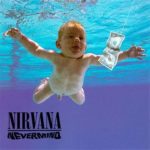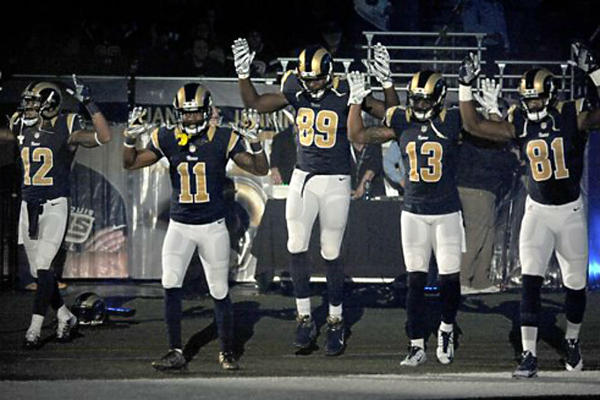The early 1990’s found more than one style of music at its own personal crossroads. Country discovered that its reach was much bigger than previously thought with the advent of Soundscan. Hip-Hop let loose its grip on the periphery of recorded music and began to enjoy the spoils of mass marketing without feeling like sell outs. And Rock & Roll was attempting to rebuild in the twisted debris of the cookie cutter tone deaf hair bands that dominated the the 80’s.
It was fertile ground for whoever could muscle their way out of the ocean of sounds to take center stage. Amazingly enough though, the small group who came out of Seattle, Washington to snatch that crown was the crew who least wanted it.
The grunge movement reluctantly took the world by storm in 1991 with their fuzzy, complicated guitar riffs and angst filled and sometimes ambiguous lyrics. It was an alternative sound rooted in punk that found its home in small clubs and late night radio shows in the Northwest. However, Nirvana and Pearl Jam with their releases of Nevermind and Ten, respectively, spread the gospel of grunge from Seattle to Siberia and everywhere in between. Boycotts, drugs abuse, and suicide shortened the careers of both bands. However, after selling a combined 23 million copies, both groups were saddled with the legacy of making grunge commercial. They were also responsible for two of the best albums ever released. One has to rock harder though.
 Nevermind is 12 cuts of obnoxious, amplifier-bashing guitar riffs, startling word play and slick production that could send the meekest of wallflowers straight to the mosh pit. Producer Butch Vig’s love for overdubbing and double tracking added a studio contrived fullness to the album that rounded the rough edges the band produced with its previous album, Bleach. However, all the behind the board tweaking in the world couldn’t compete with Kurt Cobain’s perfectly structured songs and haunting lyricism.
Nevermind is 12 cuts of obnoxious, amplifier-bashing guitar riffs, startling word play and slick production that could send the meekest of wallflowers straight to the mosh pit. Producer Butch Vig’s love for overdubbing and double tracking added a studio contrived fullness to the album that rounded the rough edges the band produced with its previous album, Bleach. However, all the behind the board tweaking in the world couldn’t compete with Kurt Cobain’s perfectly structured songs and haunting lyricism.
Cobain admitted that he pieced together some of the technique he used to create songs from bands who came before. The lead single and foundation for the meteoric rise of the album, “Smells Like Teen Spirit,” was an ode to The Pixies. However, what he borrowed, he perfected. The restrained calm of the verses sandwiched in between the loud and angry chorus along with what some feel is the most powerful intro to a rock song ever provided a pendulous movement of emotion that riled up misunderstood teens from coast to coast. That structure was repeated throughout the album with songs like “In Bloom” and “Lithium.” While songs like “Territorial Pissings” and “Breed” neglect the restraint and pound from beginning to end.
The subject matter of the album, while obscured in Cobain’s hazy lyrics, ran the societal outsider’s spectrum from organized religion (Lithium) to rape (Polly) to unnecessary feuds between cultures (Territorial Pissings). A few of the songs are so nonsensical that they seem to have no meaning, but that helps drive the album’s staying power; as there are still people sitting around debating what the hell he was trying to say. It’s that same resilience that keeps the album in many critics all time best lists. However, another album that’s normally ranked with it is Pearl Jam’s Ten.
 Even though these albums came from bands from the same city in the same year and contained similarly thoughtful and sometimes disturbing lyrics, they are quite different. Eddie Vedder and company were much more melodic. Their music was rich and verdant, borrowing more from traditional rock than Nirvana. The songs moved through slower, with less noise, but were no less powerful. There is plenty of grunge trademark distortion on this album, but the overall sound has a more refined groove than Nevermind. The monstrous riffs are still there, they just have better manners.
Even though these albums came from bands from the same city in the same year and contained similarly thoughtful and sometimes disturbing lyrics, they are quite different. Eddie Vedder and company were much more melodic. Their music was rich and verdant, borrowing more from traditional rock than Nirvana. The songs moved through slower, with less noise, but were no less powerful. There is plenty of grunge trademark distortion on this album, but the overall sound has a more refined groove than Nevermind. The monstrous riffs are still there, they just have better manners.
The lyricism rarely meandered into the super cryptic as Vedder provided a clear path to his thoughts even though at times you wished he hadn’t been so forthright. The lead single from Ten, “Alive” was an upsetting story about old family secrets, incest and the guilt associated with living through the experience. The second single released from the album “Even Flow” detailed the pain and hopelessness of being homeless. The gloomy lyrics are set against a funky bassline which, at times, is enveloped by the brilliance of Stone Gossard’s lead guitar. There is banter about the sad sickness known as conformity in “Why Go” that leads a teen’s parents to force her into psychiatric help because she asserts her individuality. Jeremy is an upsetting narrative about a child who kills himself in front of his classmates because he is branded as “different.” And “Deep” with it’s off kilter riffs and winding construction tackles IV drug use.
The darkness of the lyrics on both albums would hamper lesser bands. However, both Nirvana and Pearl Jam were tapping into a disenfranchised demographic that could relate. And while neither band stayed on top for long (Cobain’s suicide and Pearl Jam’s decision not to play any venue that used Ticketmaster effectively ended any superstar status that either obtained) their styles echo on almost every current rock album in rotation. They replaced the common party and bullshit themes with thought provoking concepts and sonic fist shakes at authority. They may not have wanted to become super duper stars, but they did and the American music landscape is better off because of it. But which album holds more weight? Tell us what you think.
**Click On Thumbnails To Hear Albums**
Follow shelz on Twitter @ http://twitter.com/shelzp
Follow Us on Twitter @ http://twitter.com/planetill
Join Us on the Planet Ill Facebook Group for more discussion
Check out Planet Ill’s page on Essence.com
Follow us on Networked Blogs






WOW, talk about taking it back. I had to go with “Ten” on this one. Both albums are great and ground breaking. Just from a personal aspect,I had to go with “Ten”.
Nevermind was a good album, but ten just to superior. Best albums of the 90s.